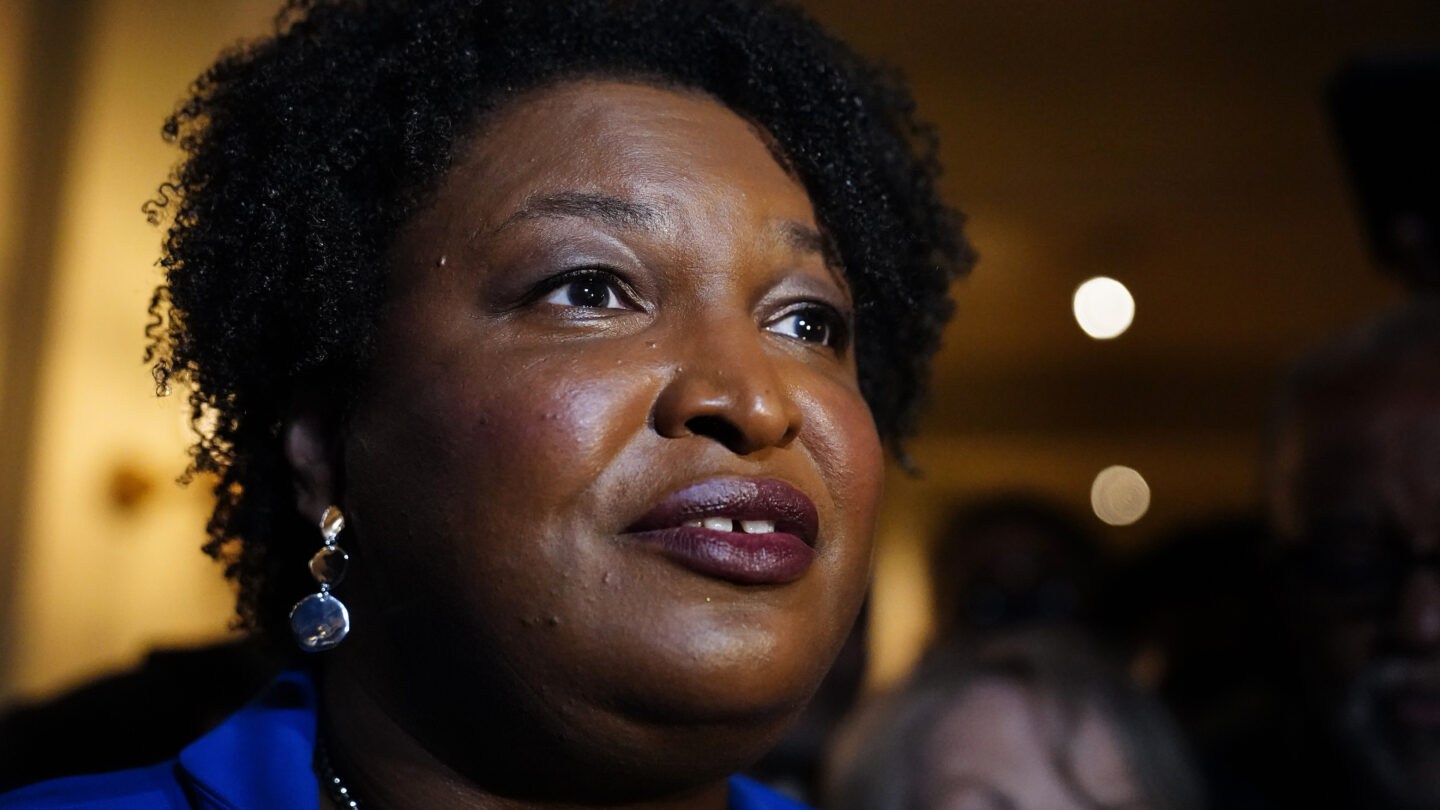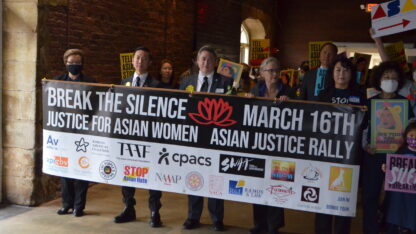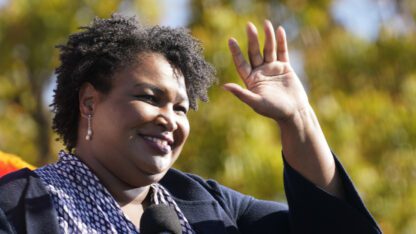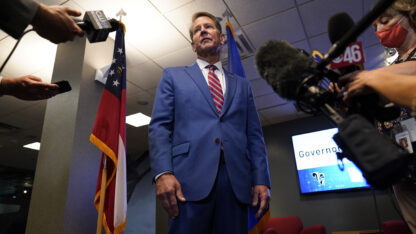Democrat Stacey Abrams filed suit Monday asking a federal judge to give a committee associated with her campaign for governor the immediate right to begin raising and spending unlimited sums under Georgia law.
Abrams is challenging as unconstitutional a new kind of fundraising committee created by Georgia lawmakers last year. Called a leadership committee, it allows certain people and groups to accept unlimited contributions. Giving to direct candidate committees is limited to $7,600 apiece for the primary and general elections and $4,500 for any runoff election.
Under the law, the governor and lieutenant governor, opposing major party nominees, and both party caucuses in the state House and Senate can form the committees. The committees can coordinate with candidate campaigns, unlike most other political action committees.
Abrams argues that because no one filed to run against her in the May 24 Democratic primary and because write-in votes are not allowed, she became the Democratic nominee when qualifying closed. State Democratic Party chair Nikema Williams, also a U.S. representative, agrees, saying the party recognizes Abrams as its standard bearer for the Nov. 8 general election.
But Abrams said in court pleadings that when a lawyer contacted the state ethics commission to confirm that her leadership committee could begin raising and spending money before May 24, a commission lawyer said he needed to seek legal advice from Georgia Attorney General Chris Carr and Secretary of State Brad Raffensperger as to whether state law considers Abrams the nominee.
After signing the law, Kemp created the Georgians First Leadership Committee, raising $2.3 million through January. Abrams said her committee, called One Georgia, has raised an undisclosed amount.
Abrams called the law unconstitutional in court filings, labeling it a “poorly-designed, if potent, scheme for incumbency protection” benefiting Kemp.
“Plaintiffs thus are competing to raise funds with one hand tied behind their backs compared to Gov. Kemp, who effectively enjoys two campaign committees — one of which can raise funds in unlimited amounts as he looks ahead to a competitive statewide election in the foremost swing state in the nation.”
David Emadi, executive secretary of the ethics body, properly called the Georgia Government Transparency and Campaign Finance Commission, said the commission does not determine whether someone is a party’s nominee or not.
Pressing for a temporary order that the campaign can raise and spend money from One Georgia, campaign manager Lauren Groh-Wargo argued in court papers that “every hour lost is an hour never to come again” in a campaign.
The leadership committees have already been a subject of legal contention in the Republican primary. Former U.S. Sen. David Perdue sued in federal court, saying Kemp’s committee gave the incumbent an unfair advantage.
U.S. District Judge Mark Cohen ruled in February that Kemp could not spend any more money from the committee during the primary, although he could keep taking in money for the general election. That was only a temporary ruling while Perdue’s lawsuit proceeded challenging Kemp’s committee as unconstitutional. Kemp is appealing the ruling.










